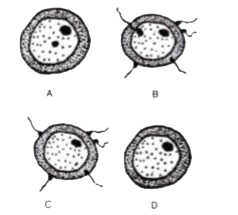A tank of water is viewed normally from above.
(a) State how does the depth of the tank appear to change.
(b) Draw a labelled ray diagram to explain your answer.
Depth of the tank remains the same when viewed normally from above.
Topper's Solved these Questions
Similar Questions
In what respect does the wave pattern of noise and music differ ? Draw diagrams to explain your answer.
View SolutionWhen does a body rotate? State one way to change the direction of rotation of the body. Give a suitable example to explain your answer.
View SolutionUsing several NAND gates, how can you obtain an AND gate ? Draw a labelled diagram in support of your answer.
View SolutionIf the image formed by a spherical mirror for all positions of the object placed in front of its is always erect and diminished , what type of mirror isit ? Draw a labelled ray diagram to support your answer.
View SolutionDraw a ray diagram to show the appearance of a stick partially immersed in water. Explain your answer.
View SolutionA fish is looking at a 1⋅0m high plant at the edge of a pond. Will the plant appear to the fish shorter or taller than its actual height ? Draw a ray diagram to support your answer.
View SolutionA person is unable to see objects distinctly placed within 50 cm from his eyes.
(a) Name the defect of vision the person is suffering from and list its two possible causes.
(b) Draw ray diagram to show the defect in the above case.
(c) Mention the type of lens used by him for the correction of the defect and calculate its power. Assume that the near point for the normal eye is 25 cm.
(d) Draw a labelled diagram for the correction of the defect in the above case.
View SolutionA small pin fixed on a table top is viewed from above from a distance of 50cm. By what distance would the pin appear to be raised, if it be viewed from the same point through a 15cm. Thick glass slab held parallel to the table ? μ of glass 1.5 Does the answer depend on location of the slab ?
View SolutionGiven below are diagrams showing the different stages in the process of fertilisation of an egg in the human female reproductive tract.
Study the diagrams and answer the questions

(i) Arrange the letters given below each diagram in a logical sequence to show the correct order in the process of fertilisation.
(ii) Where does fertilisation normally take place? What is 'Implantation' that follows fertilisation ?
(iii) Mention the chromosome number of the egg and zygote in humans.
(iv) Explain the term 'Gestation'. How long does Gestation last in humans ?
(v) Draw a neat, labelled diagram of a mature human sperm.
View SolutionYou are given a concave mirror of focal length 10 cm, a point source of light nad a screen placed at distance 30 cm in front of mirror. How can you obtain a bright patch of light on screen, of size equal to that of the aperture of mirror? Draw diagram to explain your answer.
View Solution
